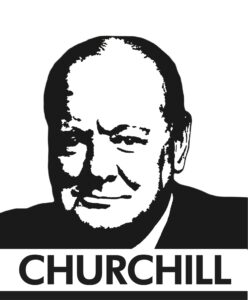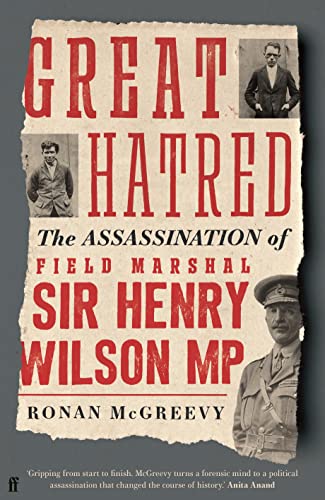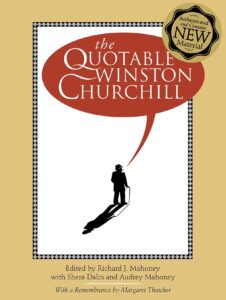
Finest Hour 197
Books, Arts, & Curiosities – In Cold Blood

March 31, 2024
Finest Hour 197, Third Quarter 2022
Page 46
Review by Robert McNamara
Robert McNamara is Senior Lecturer in International History at the University of Ulster and editor of The Churchills in Ireland 1660– 1965 (Irish Academic Press, 2012).
Ronan McGreevy, Great Hatred: The Assassination of Field Marshal Sir Henry Wilson MP, Faber & Faber, 2022, 464 pages, $27.95. ISBN 978–0571372805
The one-hundredth anniversary of the assassination of Field Marshal Henry Wilson passed in June 2022. The killing of Wilson was one of the triggers for the outbreak of the Irish Civil War soon after. Ronan McGreevy, in his new book, argues that the event was “Ireland’s Sarajevo.” It is a nice analogy. The truth was that Southern Ireland (Irish Free State after December 1922), like 1914 Europe, was a powder keg. Doctrinaire Irish republicans were bitterly opposed, to the point of violence, to the fetters on full Irish sovereignty inherent in the Anglo-Irish treaty signed in December 1921 by Michael Collins—the most effective Irish military leader in the Anglo-Irish war between 1919 and 1921. The narrow ratification of the treaty in January 1922 by the Dail, Southern Ireland’s parliament (made up entirely of members of the Sinn Fein party), against the advice of the party leader and titular president of the Irish Republic, Eamonn de Valera, was followed by Collins assuming the role of head of the provisional government.
Henry Wilson, in 1922, had just finished his term as Chief of the Imperial General Staff. Wilson had emerged from the First World War with his reputation enhanced. A backroom military bureaucrat rather than a battlefield general, he had a reasonable claim to be considered the organizer of Britain’s eventual victory. He had won over the politicians, particularly Lloyd George, though, as his caustic diaries made clear, he hated them. He was also as Irish as Michael Collins. Born in Longford, right bang in the middle of Ireland, to an Anglo-Irish landowning family, he was a “dyed in the wool” reactionary unionist bitterly opposed to Irish home rule before the First World War and independence after it.

2025 International Churchill Conference
After retiring from the army in early 1922, he promptly became a Westminster MP, sitting for an Ulster constituency, and the military adviser to the Protestant and Unionist Northern Irish government of James Craig, which faced attack from the Irish Republican Army. The six counties that made up Northern Ireland were the least affected by the Anglo-Irish war. After the establishment of the Northern Ireland parliament and the truce in the Anglo-Irish War in the summer of 1921, however, sectarian violence primarily initiated by Protestants in Belfast but drawing an inevitable response from Catholic nationalists and republicans saw Northern Ireland descend into a virtual civil war in the second half of 1921 and the early months of 1922.
The security forces of the new Northern Irish state—the special constabulary—fought the Irish Republican Army. It is now firmly established that Michael Collins, in an effort to channel the growing anti-Treaty sentiment among the militarists in the IRA, supported IRA operations in Northern Ireland. These operations failed. Wilson’s role and input was minor. His appointment as military advisor changed little. Indeed, the sectarian slayings of Catholics, few of whom had much to do with violence, dismayed him. The claims of some Irish republicans that Wilson was a new Cromwell sound overstated. But his perceived role in Northern Ireland and opposition to Irish independence made him a target for assassination. McGreevy decides it was Collins who ordered Wilson’s death at the conclusion of his interesting, if flawed and overlong, book. This is an allegation that has been around since the 1960s.
Winston Churchill’s key role was his demand for Collins, in the aftermath of the assassination, to act against the Anti-Treaty side, which was defying the authority of the Provisional government by occupying buildings in the center of Dublin. My grandfather was adamant that Collins gave way and attacked the Anti-Treaty side under British pressure. Others, including McGreevy, are less certain. The growing defiance of the Anti-Treatyites would inevitably have led to violence, according to this school of thought.
There is, to be frank, a missed opportunity here to have written a much better and shorter book. The strengths of the book are clear: the cracking opening chapter which describes the assassination is first rate, and the author has done an excellent job assembling the recently released Irish archival material: notably the accounts of Irish revolutionaries in the Bureau of Military History and the files relating to claims for military pensions in independent Ireland, as well as other collections, such as Ernie O’Malley’s papers. The relatively neglected story of the two assassins, Reginald Dunne and Joseph O’Sullivan, is detailed.
There are, however, problems. Three words are used when one would do, and cliches are dropped, as the author might say, like confetti. Lights are under bushels and a town in West Cork, Bantry, is “blessed by geography but cursed by history.” The book feels hurried—as if it was written to the deadline of the anniversary. It is not clear why the Henry Wilson diaries were not consulted in the Imperial War Museum. Indeed, McGreevy’s treatment of Wilson is weak. It should be said he tries to be fair to Wilson but does not comprehend his viewpoint. Indeed, he shows little understanding of the difficulties that British policymakers faced in the post-war period and makes the common assumption of many Irish writers that Ireland was, or should have been, the entire focus of Lloyd George’s post-war government.
The Dunne and O’Sullivan material is the most novel aspect of the book. (There are, it might be noted, a lot of books about Wilson and his killing, notably Keith Jeffery’s 2006 biography.) But McGreevy’s treatment of the assassins is far too long and quite repetitive. Do they require nearly as much discussion as Wilson? Could they not have been dealt with together to avoid repetition, particularly considering some of the distinct similarities in their backgrounds? There are some inconsistencies. By example, Lloyd George is described as a physical coward at one point and then, twenty pages on, as calm and collected in the face of danger. There are also some minor imprecisions on the facts.
One of the reasons for the book’s excessive length is the decision to block quote from the documentation, particularly the Irish material. Now, some will love this immersion in the archives, but it is not to my taste, particularly when so much of it is digitized and freely available online. I also felt that the claim that Collins ordered the assassination is not proven, though McGreevy makes a good fist of assembling the case for the prosecution. In the end, the carping from this reviewer is partly because I am overfamiliar with Wilson and his grisly end. The book, it should be emphasized, is not without interest. If you are new to this period of Irish history and unfamiliar with the Wilson assassination, you will find much of it gripping and enlightening.
Subscribe
WANT MORE?
Get the Churchill Bulletin delivered to your inbox once a month.





